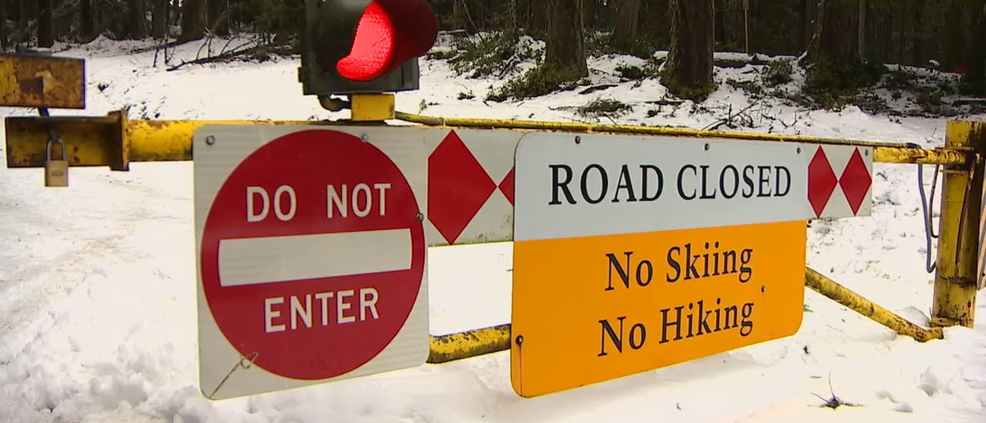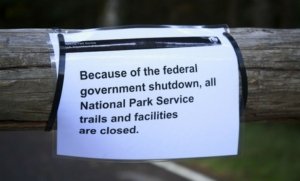
As the federal government shutdown drags on, its impacts are being felt by people across the country and in all walks of life, including backcountry skiers and other snowsports enthusiasts, reports Winter Wildlands.
The vast majority of winter backcountry recreation occurs on Forest Service and Park Service lands, and since the shutdown began most of the people who care for these lands and manage the recreation that occurs upon them have been temporarily laid off from their jobs. 800,000 federal employees have been furloughed and those who are working must do so without a paycheck. Although in some places volunteers and partner organizations have stepped in to pick up trash and stock and clean outhouses, or even pay some federal employees so that they can do their jobs, this only makes up for a very small amount of what the federal agencies do.
Of course, backcountry skiers and the public at large, prefer to be able to access and enjoy public lands, but access without management can lead to big issues.

Many of the roads and trailheads that are normally plowed for winter access are not currently being plowed or maintained. For example, all vehicle access to Rainier National Park is closed during the shutdown, and while you can walk in, there’s nowhere to park outside of the Park, therefore essentially eliminating access to Rainier. With Rainier closed, ski guides and avalanche courses are re-routing to places on Forest Service land, such as Mt Baker, increasing crowding in already busy areas.
While there are some roads on federal land that are plowed by non-federal entities, or roads that access communities and therefore must be plowed for the purposes of public safety (such as the road through Yellowstone National Park that accesses Cooke City, MT), agency staff are not able to respond to emergency calls. Although local search and rescue teams remain active, the lack of agency staffing may slow down rescues because search and rescue teams won’t have access to valuable information and logistical support. Therefore, those venturing into the backcountry, and even remote frontcountry areas, are at an elevated risk.
Trail grooming is also curtailed during the shutdown. In some areas, local businesses are stepping up to cover grooming costs because their business depends on visitor access to groomed trails. Of course, in many places, local partners already do the bulk of trail grooming and this grooming is not impacted by the shutdown. But, many cross-country ski trails are maintained by the Forest Service or Park Service and these trails will not be groomed during the shutdown.
Finally, although law enforcement staff and avalanche forecasters are still working during the shutdown because their jobs are considered essential for public safety, they’re not getting paid. For weeks.
You Trump !!!!